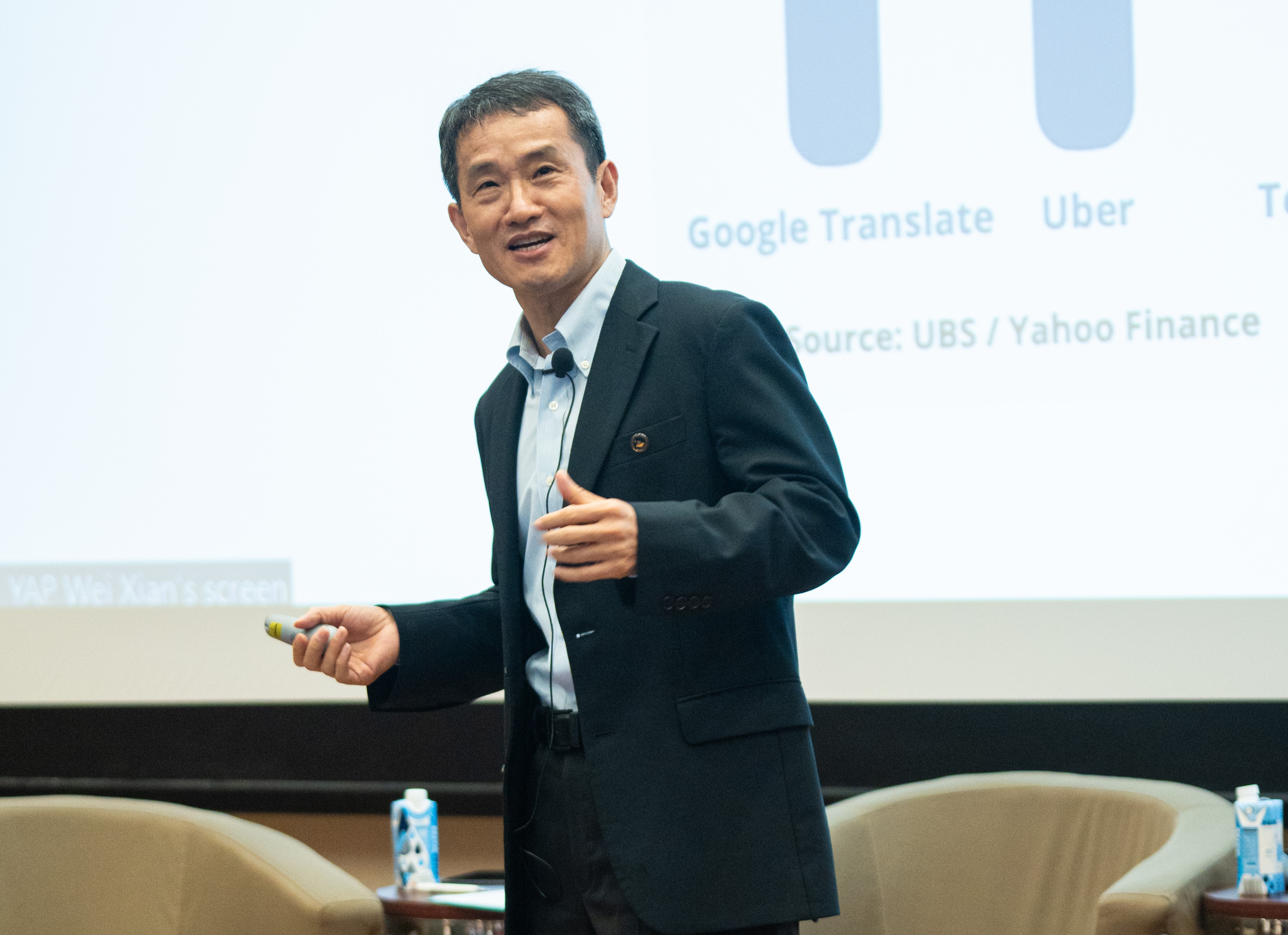Digital Transformation
Our scholars in this research cluster are dedicated to investigating the influence of digital technology on various aspects of corporate decisions, including investment, financing, and operating decisions. Furthermore, we explore the implications of digital transformation for financial reporting and disclosure, with particular emphasis on the role of social media in shaping the corporate information environment. Our research aims to deepen the understanding of the complex and dynamic interactions between digital technology and accounting and finance practices, while contributing to the development of effective strategies for businesses and policymakers to navigate this rapidly evolving landscape.
We highlight a selection of our faculty’s research into digital transformation below:
Misinformation Regulations: Early Evidence On Corporate Social Media Strategy
Against the backdrop of an increasing threat of misinformation on social media, several countries have enacted regulations to curb the spread of misinformation. This study examines how corporate social media strategy responds to misinformation regulations. Using a large cross-country dataset of corporate tweets and a stacked regression analysis, we show that misinformation regulations lead to less corporate social media disclosure. This result suggests that by deterring misinformation, these regulations reduce firms’ need to use social media to counteract its adverse effects. Additional analyses show that the effect is more pronounced among countries with higher social media usage and countries with stronger investor protection, but weaker for firms with stronger information environments. Finally, we provide direct evidence that firms post fewer tweets refuting misinformation about themselves following the enactment of these regulations.
Author(s): Liandong Zhang, Deputy Dean and Lee Kong Chian Professor of Accounting, Yun Lou, Associate Professor of Accounting, Richard Crowley, Assistant Professor of Accounting, Samuel Tan, Assistant Professor of Accounting
Published in/Presented at: Review of Accounting Studies, (2025) 1-56
The Impact Of Managerial Myopia On Cybersecurity: Evidence From Data Breaches
Using a large sample of U.S. firms for the period 2005–2017, we provide evidence that real earnings management activities contribute to corporate cybersecurity risk. Specifically, we show that abnormal cuts in discretionary expenditures, our proxy for real earnings management, are positively associated with the likelihood of data breaches. The association is largely driven by firms that appear to cut discretionary expenditures to meet short-term earnings targets. In addition, the association is stronger for firms with greater equity incentives, a high earnings response coefficient, low levels of institutional or block ownership, or large market shares. Finally, firms appear to increase abnormal discretionary expenditures upon the announcement of data breaches by their industry peers.
Author(s): Liandong Zhang, Deputy Dean and Lee Kong Chian Professor of Accounting, Haibin Wu, Associate Professor, City University of Hong Kong, Hong Kong, China, Xing Li, Associate Professor, Xi'an Jiaotong University, China, Wen Chen, Associate Professor, City University of Hong Kong, Hong Kong, China
Published in/Presented at: Journal of Banking & Finance, Volume 166, September 2024, 107254
Discretionary Dissemination On Twitter
The study provides large‐scale descriptive evidence on the timing and nature of corporate financial tweeting. Using an unsupervised machine learning approach to analyze 24 million tweets posted by S&P 1500 firms from 2012 to 2020, we find that firms are more likely to tweet financial information around significantly negative or positive news events, such as earnings announcements and the filing of financial statements. This convex U‐shaped relation between the likelihood of posting financial tweets and the materiality of accounting events becomes stronger over time. Whereas research based on early samples concludes that firms are less likely to disseminate financial information on Twitter when the news is bad and material, the symmetric dissemination behavior we find suggests that these conclusions should be revised. We also show that a machine learning algorithm (Twitter‐Latent Dirichlet Allocation) is superior to a dictionary approach in classifying short messages like tweets.
Author(s): Richard Crowley, Assistant Professor of Accounting, Wenli Huang, Hong Kong Polytechnic University, Hai Lu, Rotman School of Management, University of Toronto
Published in/Presented at: Contemporary Accounting Research, Volume41, Issue4 Winter 2024 Pages 2454-2487
Does Generative AI Facilitate Investor Trading? Evidence from ChatGPT Outages
In this paper, we use ChatGPT outages to investigate whether investors rely on generative artificial intelligence (GAI) to perform trading-related tasks and the associated impact on stock price informativeness. We first document a significant decline in stock trading volume during ChatGPT outages and find that the effect is stronger for firms with corporate news released immediately before or during the outages. We further document similar declines in the short-run price impact, return variance, and bid-ask spreads, consistent with a reduction in informed trading during the outage periods. Lastly, we use trading volume changes during outages to construct a firm-level measure of the intensity of GAI-assisted trading and provide early evidence of a positive effect of GAI-assisted trading on long-run stock price informativeness. Overall, our findings contribute to the debate on the potential effects of AI trading models on financial market stability.
Author(s): Cheng Qiang, Lee Kong Chian Chair Professor of Accounting and Dean of the School of Accountancy, Lin Pengkai, Assistant Professor of Accounting, Zhao Yue, PhD in Accounting Student
Published in/Presented at: Conference on Digital Transformation of Financial Markets 2024 and Tri-Uni Accounting Research Conference 2024
Misinformation Regulation and Capital Market Quality
The research project evaluates the effectiveness of misinformation regulations, particularly on the capital market, using natural language processing tools.
The study aims to broaden the views of regulators on the potential effects of anti-fake news laws by highlighting how such laws affect not only political processes but also capital markets. By focusing on social media and outcomes on capital markets, specifically, the effect of anti-fake news policies can be evaluated in a measurable and meaningful way by researchers.
Author(s): Liandong Zhang, Lee Kong Chian Professor of Accounting and Deputy Dean of School of Accountancy, Yun Lou, Associate Professor of Accounting, Samuel Tan, Assistant Professor of Accounting, Richard Crowley, Assistant Professor of Accounting
Published in/Presented at: Research@SMU, Awarded MOE Academic Research Fund (AcRF) Tier 2 Grant
The Economic Value of Blockchain Applications: Early Evidence from Asset-Backed Securities
In this paper, we evaluate the economic value of a blockchain application. In the context of asset-backed securities (ABS) issuance in China, where some ABS are issued with blockchain technology and others are not, we find that the use of blockchain significantly reduces the coupon yield at issuance. Compared with other ABS, those issued using blockchain technology experience a decrease of 31.4 basis points in the yield spread, which corresponds to a relative decrease of 13%. We further document that the effect of blockchain is more pronounced for ABS deals rated by less reputable credit rating agencies and agencies that rely more on issuers for their rating business, for revolving ABS, and for ABS with a larger number of underlying assets. We also find that the use of blockchain can reduce the level of retained interest and number of credit enhancement mechanisms. This paper contributes to the literature by providing a small-sample analysis of the economic value of a blockchain application in financial markets.
Author(s): Cheng Qiang, Lee Kong Chian Chair Professor of Accounting and Dean of the School of Accountancy, Chen Xia, Lee Kong Chian Professor of Accounting, Ting Luo, Accounting Professor, Tsinghua University
Published in/Presented at: Management Science, Volume 70, Issue 1 January 2024
What are You Saying? Using Topic to Detect Financial Misreporting
We use a machine learning technique to assess whether the thematic content of financial statement disclosures (labeled topic) is incrementally informative in predicting intentional misreporting. Using a Bayesian topic modeling algorithm, we determine and empirically quantify the topic content of a large collection of 10-K narratives spanning 1994 to 2012. We find that the algorithm produces a valid set of semantically meaningful topics that predict financial misreporting, based on samples of SEC enforcement actions (AAERs) and irregularities identified from financial restatements and 10-K filing amendments. Our out-of-sample tests indicate that topic significantly improves the detection of financial misreporting by as much as 59% when added to models based on commonly used financial and textual style variables. Furthermore, models that incorporate topic significantly outperform traditional models when detecting serious revenue recognition and core expense errors. Taken together, our results suggest that the topics discussed in annual report filings and the attention devoted to each topic are useful signals in detecting financial misreporting.
Author(s): Richard Crowley, Assistant Professor of Accounting, SMU, Nerissa C. Brown, University of Illinois at Urbana-Champaign, W. Brooke Elliott, University of Illinois at Urbana-Champaign
Published in/Presented at: Journal of Accounting Research, Volume 58, Issue 1 March 2020







